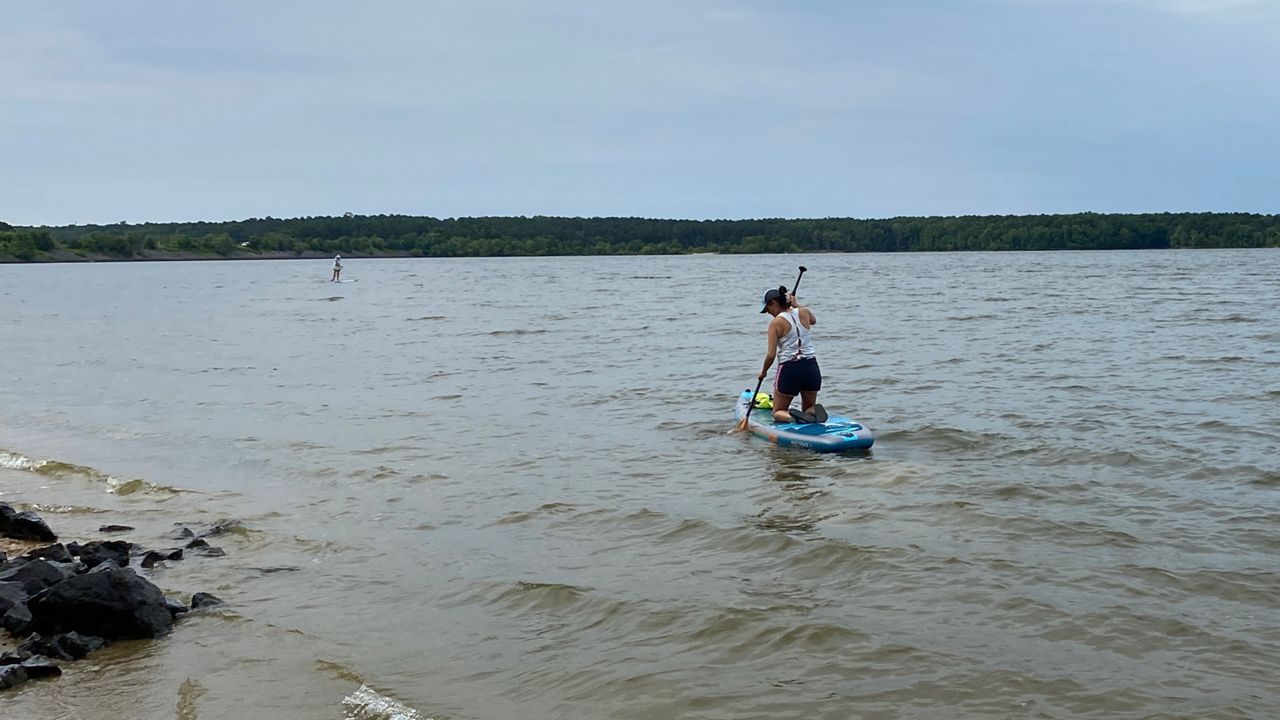Dogs got sick and some died after swimming near the Farrington Boat launch on Jordan Lake over the weekend, according to Chatham County Public Health.
The Department of Environmental Quality reports algae blooms and cyanobacteria, also called blue-green algae, at half a dozen monitoring sites around Jordan Lake, south of Chapel Hill.
On Monday morning, Frances Foner, of Morrisville, was putting her stand-up paddleboard in the water at the Farrington Point boat launch. She said she had not heard about the algae bloom or dogs getting sick.
"Sometimes I bring my dog right here," she said. "We see a lot of other dogs here."
She said she feels more comfortable bringing her dog to Jordan Lake because "it's a larger body of water and less stagnant." She avoids taking her dog to places like Lake Crabtree because she worries about algae there.
This is not the first time environmental officials have warned about toxic algae in Jordan Lake. A 2018 study from researchers at N.C. State University found low levels of toxic algae are found year-round in the lake.
But it becomes worse in the summer months when sunlight and warm water temperatures help the algae grow, according to DEQ.
"Some algae, especially blue-green algae, can produce toxins. These toxins have been linked to adverse health effects in wildlife, domestic pets, and humans," according to state environmental officials.
Lakes with toxic algae can look discolored or have scum on top that looks like "spilled paint," according to DEQ. "Blooms can appear bright green, blue, red, or brown. As cyanobacteria in a bloom begin to die, they may produce a strong, foul odorand turn milky blue in color."
People can use DEQ's algal bloom map to check algae levels in North Carolina lakes. But they should also look out for discolored water and other signs of blooms.
Here are DEQ's tips to stay safe if there is the possibility of toxic algae in the water:
- If there is the potential for toxic algae in the water, here are DEQ's tips to stay safe:
- Keep children and pets away from waters that appear discolored or scummy.
- Do not handle or touch large accumulations (“scums” or mats) of algae.
- Do not water ski or jet ski over algal mats.
- Do not use scummy water for cleaning or irrigation.
- If you accidently come into contact with an algal bloom, wash thoroughly.
- If your pet appears to stumble, stagger, or collapse after being in a pond, lake or river, seek veterinary care immediately.
- If your child appears ill after being in waters containing a bloom, seek medical care immediately.
- If you are unsure whether or not a bloom is present, it is best to stay out of the water.
Click here for map showing algal blooms in North Carolina.



